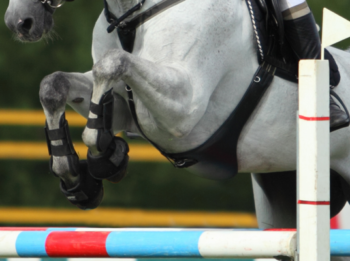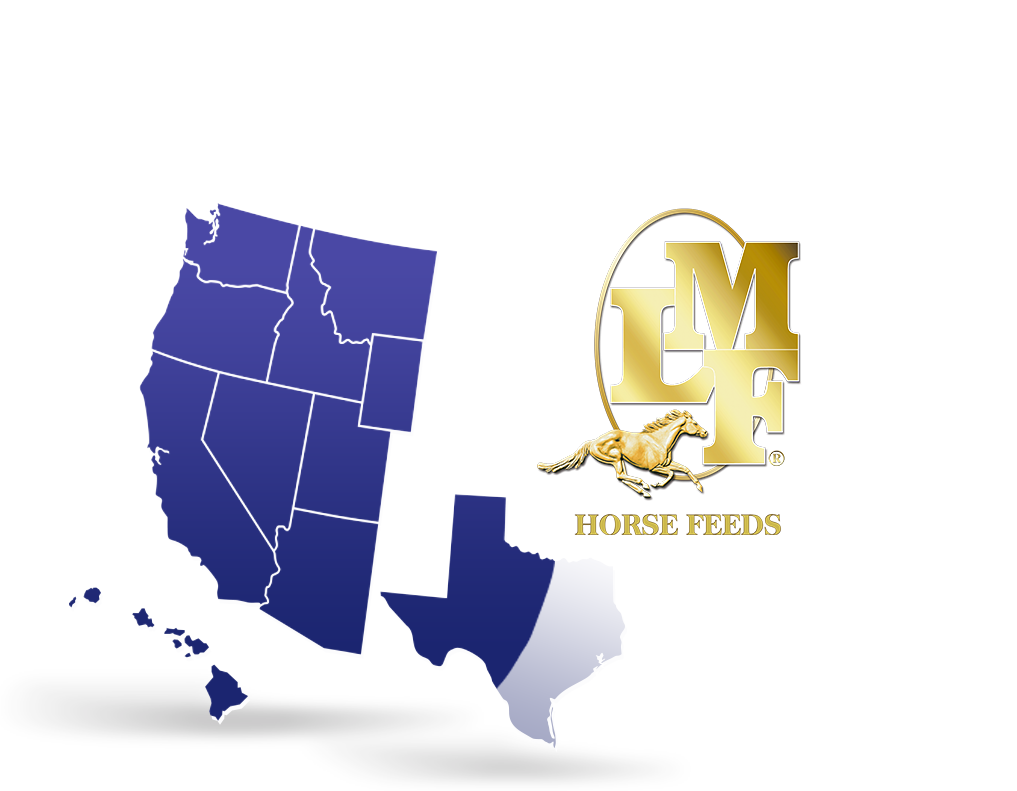Feeding the Eventing Horse
Eventing at all levels requires a horse to be extremely versatile. The horse must possess athleticism, concentration, agility and stamina. Making sure that your event horse is getting all the nutrition they need from their diet will help to ensure they can perform to the best of their ability. That being said each and every performance horse requires the following essential nutrients: water, energy (calories), protein, vitamins and minerals. Nutritionists and horse owners spend a great deal of time choosing feeds and supplements in an effort to balance the diet for these essential nutrients. As a three-day event horse progresses in training and level of competition the requirements for these essential nutrients increase and may exceed 1.5 to 2 times their requirement for maintenance. The following is a discussion of how feeds and feeding management can help three-day event horses meet their nutrient requirements.
Water
Small decreases in the amount of water contained within the body (dehydration) can lead to serious health consequences as well as a decline in performance potential. Performance horses must maintain proper hydration to transport materials to and from the cells within the body and to synthesize and repair body tissues. The amount of water required by a performance horse depends on the amount of water lost from the body. For performance horses, water is lost from the body primarily in sweat. Eventing horses cool themselves by dissipating heat through sweat, especially during the most intensive phase of cross-country. This results in both loss of water and electrolytes. Electrolytes are charged particles, including sodium, potassium, chloride, calcium and magnesium. These particles control among other things nerve and muscle function in the body. Loss of electrolytes causes fatigue, muscle weakness and decreases the thirst response from dehydration. Therefore, it is vital to replace both water and electrolyte losses in eventing horses. To replace the water lost from the body, performance horses should have free access to fresh, clean water. Ice cold water should be avoided for horses still hot and sweaty from exercise, since cold water may cause shock to their system. Electrolytes should be added to the diet of the eventing horse the night before and the morning prior to exercise. Avoid adding electrolytes directly to the water as some horses may not drink the water and therefore will become more dehydrated. Following exercise, electrolytes should not be given to a horse that is dehydrated; instead the horse must be re-hydrated before electrolytes are provided.
Forage
It doesn’t matter what the discipline or breed, all horses should consume at least half of their diet as forage (hay, pasture, and other processed forage). Good-quality forage is a source of each essential nutrient. High-quality grass hay is usually adequate for the eventing horse; however, young horses should have mixed grass/lucerne hay or the addition of a lucerne product to their meals. This will increase the amount of quality protein in the diet along with calcium, phosphorus, and other nutrients. Other scenarios where adding some lucerne to the diet would be beneficial include horses that need to gain weight as lucerne has more calories than regular grass hay. Also horses that suffer from ulcers may benefit from the addition of lucerne especially prior to exercise as it contains high amount of calcium which acts to buffer the stomach acid and negate the splashing effect of stomach acid that occurs during exercise. The typical recommendation is that horses eat 1.5 to 2% of their body weight in forage per day. For an 1100lb three-day event horse this equates to 15 – 20 lb of dry hay per day.
Energy
The main component of any horse’s diet should be forage, but three-day event horses require additional supplementation to meet the increased nutrient demands of training and competition. This additional supplementation comes in the form of adding grain and fat to the diet. There are two basic metabolic pathways utilized by the horse to provide energy – aerobic and anaerobic. Eventing horses utilize both metabolic pathways during the course of a single competition. Aerobic metabolism simply means “requiring oxygen” and is the primary means of energy production when the horse is doing slower work such as the dressage phase of an event. At these slower speeds the horse burns dietary fat and body fat as the primary a fuel source. The anaerobic pathway (without oxygen) is totally dependent on carbohydrate from grain to produce energy. Carbohydrate from the diet is broken down and stored in the muscle as glycogen and provides quick bursts of energy to the horse. This pathway would be used during the showjumping phase of an event and a combination of both pathways would be used during the cross-country phase.
Feeding Management
There is concern regarding feeding large quantities of grain to horses as it can lead to high quantities of undigested grain (starch) reaching the large intestines. Undigested starch that is fermented in the large intestine can cause several metabolic problems including: colic, laminitis, gastric ulcers or simply poor performance. To overcome this LMF processes grains to make them more digestible by the small intestine of the horse and safer to feed. Yeast Culture is also added to the feeds to stabilize hindgut pH and decrease the risk for colonic ulcers.
Fat (vegetable oil) is an extremely useful energy source for three day event horses for several reasons. First, vegetable oil is well digested (>90%) by horses. Compared to hay, fat is nearly twice as digestible. Second, vegetable oil contains more than 2.5 times as much digestible energy as an equal weight of corn and 3 times as much digestible energy as an equal weight of oats. The high calorie content of vegetable oil is very helpful in fueling the high-energy requirements of eventers. Adding high fat grain concentrates such as LMF Gold, will safely increase the energy density of the diet.
Feed Timing
One of the most frequently asked question’s regarding feeding the performance horse is when to feed before a competition. Several studies found that feeding small amounts of hay prior to exercise was beneficial in stimulating water intake and maintaining hydration. However, feeding grain concentrates to performance horses is not recommended within 3 to 5 hours prior to competition. Avoiding last minute meals of grain will allow horses to properly mobilize and utilize carbohydrate and fat during exercise. Feeding post exercise is critical to the recovery of the horse. Following exercise, horses should be immediately provided with hay and water. Once the horses have consumed hay and drank water, a meal of a balanced grain concentrate should be provided within 1.5 hrs. after exercise. This balanced grain concentrate should contain vitamins, minerals, carbohydrates fat and branched chain amino acids.
Summary
With the high levels of energy three-day event horses are expending, it is important to feed the right balance of forage along with high-energy feeds. These high-energy feeds should be fortified with vitamins and minerals to meet the extra demands imposed by exercise. Remember that horses are individuals and vary greatly in their requirements for energy. Some horses become over weight when fed according to the guidelines while others lose weight. Therefore, monitor each individual horse’s condition constantly and feed each one accordingly. Working with a nutritionist is recommended to make sure the horse is provided with exactly the right nutrients to obtain the best performance possible. Contact LMF Feeds to speak with a nutritionist and arrange a diet evaluation for your horse.

Available Across the West.
Distributed throughout the Northwest, Southwest, Hawaii and Texas.
Find a Dealer Near You

